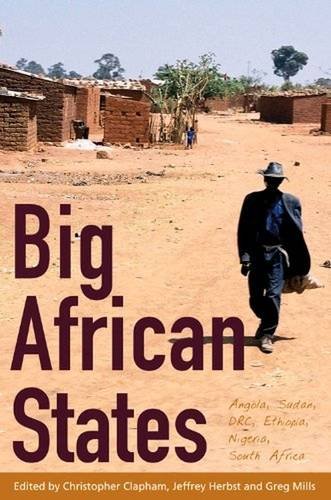Books
Big African States: Angola, DRC, Ethiopia, Nigeria, South Africa, Sudan

Former President and CEO of the NEWSEUM, USA

Director, The Brenthurst Foundation

Professor of African Studies, University of Cambridge
One of the least challenged assumptions in the political analysis of the viability of states is that "bigger is better". Throughout the academic literature, across the policy debates, and in almost all public debate, large states are assumed to have a better chance for development and small states are assumed to be problematic. However, in sub-Saharan Africa, large states...have performed poorly.
Western notions of statehood have tended to influence the analysis of the viability of states in Africa, particularly the view that larger states have the greater potential to sustain economic viability. Yet, against a background of much recent progress on the African continent in terms of economic development and improvements in governance, it is the larger African states which have persistently disappointed - both in terms of their own economic and political development and in terms of their ability to exert a positive influence on the region in which they are located.
In this study of six African 'big states' specialists across a range of disciplines analyse both the country-specific factors which have led to all but one of these states being described as dysfunctional, as well as cross-cutting issues which affect all of the big states in Africa and which may have contributed to 'dysfunctionality'. The country-specific studies are combined with analyses of cross-cutting issues of leadership, rebellion, lootable commodities, and engagement with the international political and economic system. Finally, the conclusion considers some of the policy implications that emerge from the study.

